There’s more to Child’s Play – a continuation of the Chucky franchise, that pure horror. There’s a playful tone, a semi-tongue-in-cheek approach that has enriched the material and always made for entertaining cinema. To capture that combination, the score was left in the reliable hands of composer Bear McCreary, and he’s crafted a fun and adventurous sound, that doesn’t compromise on the scares. To celebrate the film’s release we spoke to McCreary about his experience on this project, which he describes as both his most personal, and his most fun for years. He tells us about his influences, his process, and why he decided to build a toy orchestra…
What was it initially attracted you to getting involved in this project?
I always look for projects that will challenge me, or let me do something that I haven’t done before, and especially when it comes to horror scores, I always look for an angle, a way in. There is a lot of horror music out there that does its job but doesn’t necessarily have a personality. For example when I did Happy Death Day, which is a horror but it’s a comedy, a Groundhog Day/Back to the Future thriller, it was super weird. So when I heard about Child’s Play, initially it wasn’t something I was jumping to do, not because I don’t love Chucky, but I feel like the franchise has done so many things and has been around for so long, that the idea of rebooting it and telling this supernatural original story again wasn’t something I was inspired by. But I had the chance to see the new film when they offered it to me, and immediately I knew I had to do it. It was the emotional story, the Spielbergian filmmaking, the Paul Verhoeven satire, the Kubrickian kind of 2001 science-fiction tone, and all of these things smashed together into this really different spin on the material, and I found my imagination was whirling. I spoke to the director and we started talking immediately, and I told him it reminded me of AI, and it reminded me of Poltergeist, and realised these were the kind of things he was drawing from, and I realised I had to do it. It was a very inspiring spin on the material and it gave me a way in to a do a horror score with a different point of view, and I was hooked, that was it really. I saw the movie and that was it.
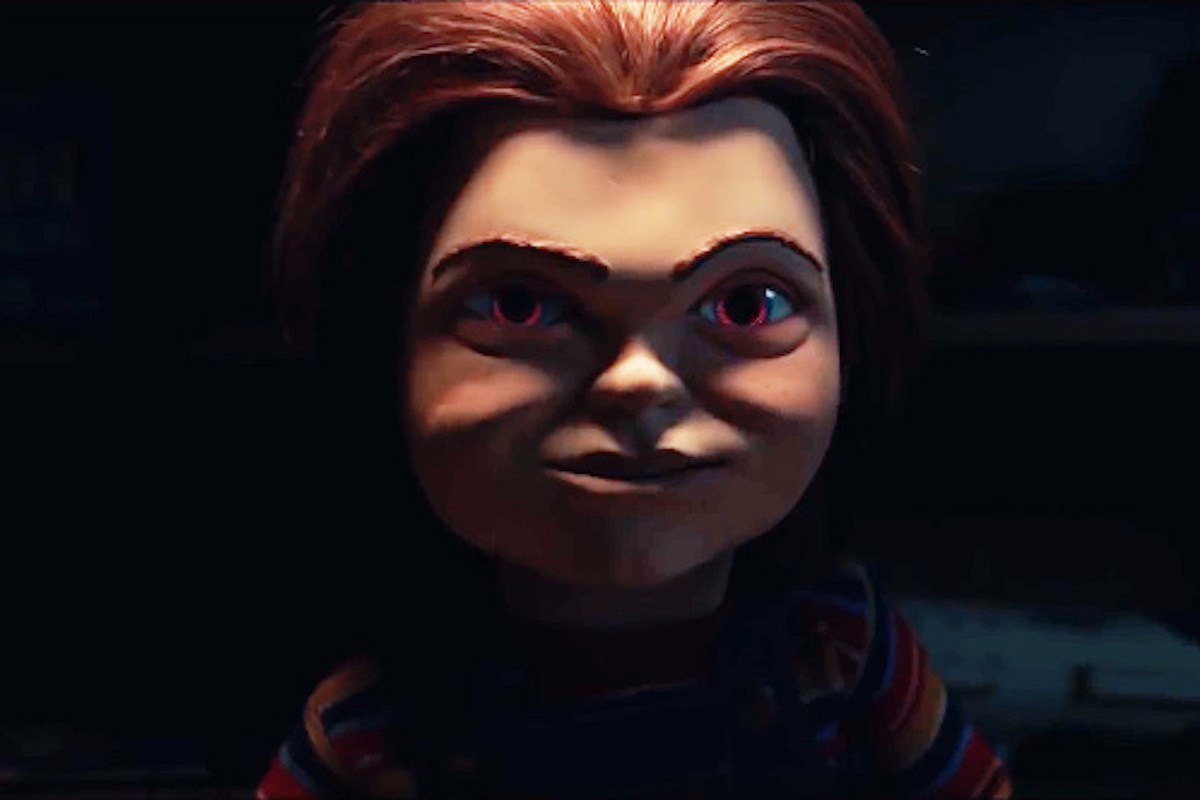
When you do horror scores, does it give you a freedom to be quite creative? Because there’s no rhyme or reason, it can be loud and without order, screechy. Do you enjoy having that space to play with, which you may not have in other genres?
That’s a good observation, because yes I do enjoy the creative wiggle room that is afford to the composer in a genre like horror, or fantasy or sci-fi. Part of that comes from the role of the score, which is to help the audience suspend their disbelief, which is more difficult in these genres than in something that takes place in a world we recognise. So music helps to lure the audience in, you need to believe that this doll is alive and has an agenda, or you need to believe that aliens are real, or that this character is haunting your dreams, when you say it out loud it’s a big stretch, it would take a lot to convince me that’s happening in real life. But all it takes in a movie is some really cool, spooky, edgy, well thought out music and filmmaking techniques, and I’m gonna believe it.
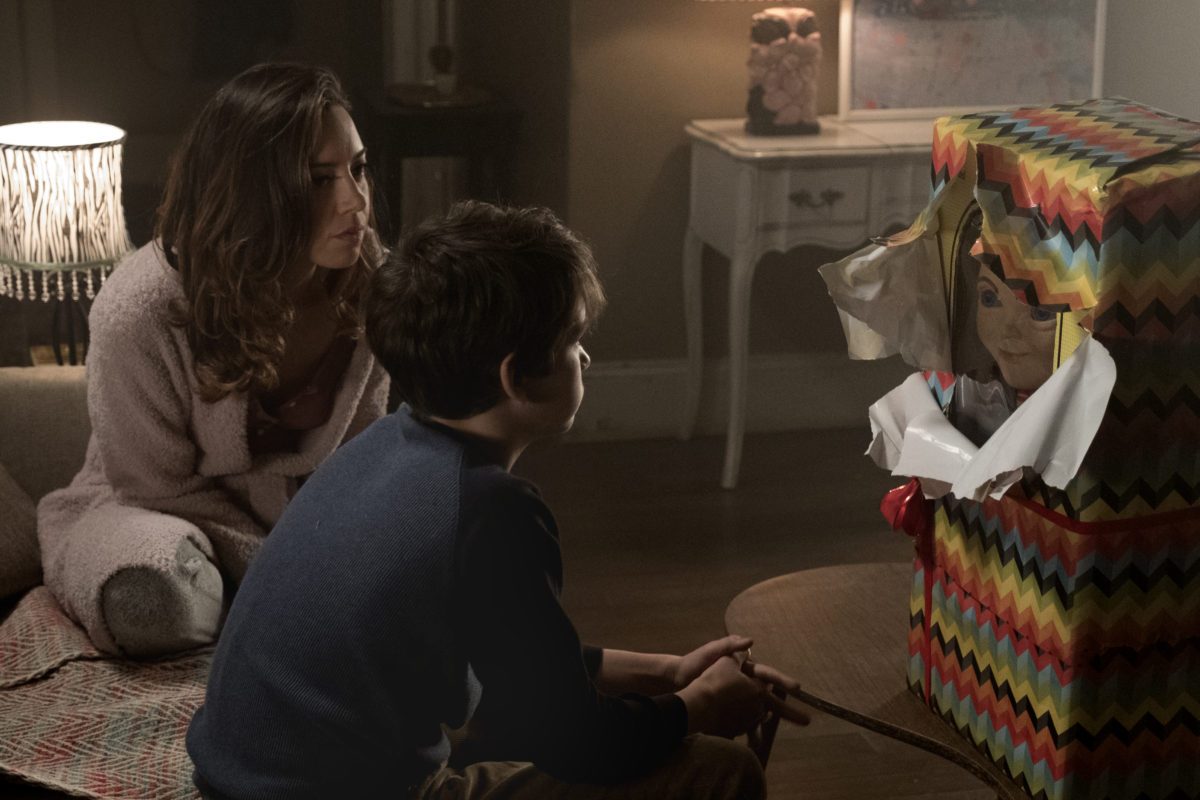
It must be so fun having that power? To manipulate the audience’s emotions?
Absolutely, it’s why it’s fun to be a filmmaker. People that make films are the ones that were on the playground, always telling spooky stories to scare the other kids about what they did over the weekend, to make them believe there’s a monster under the school closet. Some of us are ingrained to enjoy giving other people an emotional reaction. You also used one of my favourite words, and to some people it’s a dirty word; manipulate. Yes, absolutely the filmmaking experience is manipulation. Sometimes when I work with filmmakers that are hesitant or a little concerned, or they want to be extra subtle, they think manipulate is a bad word, they don’t wanna feel like they’re manipulating the audience. But on a fundamental level, that’s what my job is. The audience have paid money to watch a screen that shows them pictures, and we have to make them feel like they’re watching a real thing, and to feel these emotions, and music is a huge part of that. Sometimes when I really get something quickly, I sit back in my chair and laugh with joy at how fun it is, realising that something is going to click, and Child’s Play particularly gave me dozens of experiences like that in the studio, it was a lot of fun.
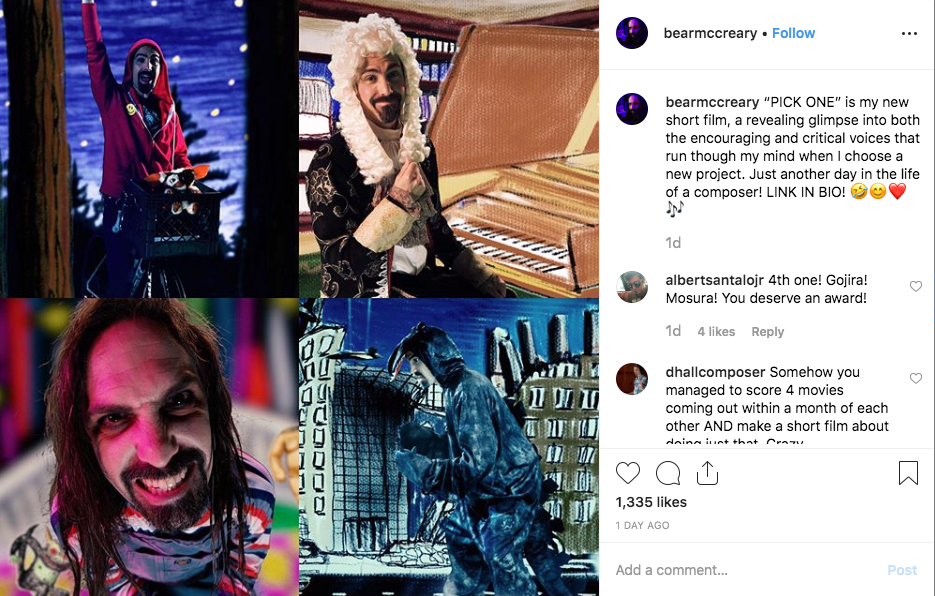
Can you get scared watching films back that you’ve scored? Or is that hard when you’re so closely connected to the project?
Well by the the time it’s done, the film is ruined for me, I’ve seen it thousands of times. Over and over for weeks, months, maybe even years. So it really has lost its magic for me. That’s why the first viewings of a film are so important, because when I watch an early version of the film, especially one I know I’m going to be working on, I’m already imagining the music that I will eventually write, and if I feel the emotion that I want to feel, then I know that this movie is going to work, and I get into my studio and I will sketch it out, and I will definitely feel it there, I have to feel the emotion and the joy, all of that. But the more I work on it, the less I feel it. Then I go and record it and I feel it again with a live orchestra, and I go and mix it, and then the final notes with the director and the studio, then by the time you get to the premiere, it’s almost a scientific experiment now, you’ve lost that objectivity. But I will say this, one of the things I enjoy the most is watching it with an audience for the first time, because the kinetic energy in the room, watching it with people who have not seen it, you can vicariously relive those emotions from the first time around, you can feel something working for them, and it’s one of the reasons why I love working in film as opposed to television or video games, because it does give me a little bit of that experience, it’s meant to be on a large screen in front of a crowd, and to witness that visceral crowd reaction, and there’s really nothing else like that, it’s a pretty magical feeling.
You mentioned an orchestra – I read in this instance you had a toy orchestra? What can you tell me about that idea? To compose and perform a lot of this score using toy instruments?
Yeah, it’s funny because I mentioned that I was very inspired when I first saw the early cut, and when I talked with the director I basically said two things. One is that I’m supremely interested in joining the team and working on the film, and that I really loved the film. But my condition basically was, I had this idea that there should be no orchestra at all, and should be scored only with toys and the only real instruments that I would use would be weird little handheld instruments that I can play myself, like a hurdy-gurdy, an accordion, a ukulele, a plastic guitar, an upright piano that hasn’t been tuned in a year. That sort of sound. He loved the idea, so that was the concept going in. Did I stick to it? I would say 95% yes. What you’re hearing, every single sound is a performance that I have done myself. I play all the instruments. I even sing most of what you’re hearing in the vocals. There’s a recurring theme that sounds like a little girl’s choir singing ‘la la la la’ in this spooky kind of Danny Elfman inspired way. And that’s me, at the top of my range. Even that I was gonna replace, and everybody loved the sound of my voice, I even brought in some female singers to deliver a performance, and we put them side by side for a sort of blind taste test, and my falsetto vocals definitely sounded more like Chucky than the professional singers’. So the other 5% was me hiring a quartet, five strings, and I used them for the more emotional passages. There are some beautiful moments in this film and they needed to be a little more cinematic than my weird instruments could provide. Just to provide that one layer of brilliant trained musicians performance, which makes up the more emotional components of the score. But for the most part, I am proud to say that I stuck to my goal and what you’re hearing in Child’s Play is best described as being performed by a toy orchestra.
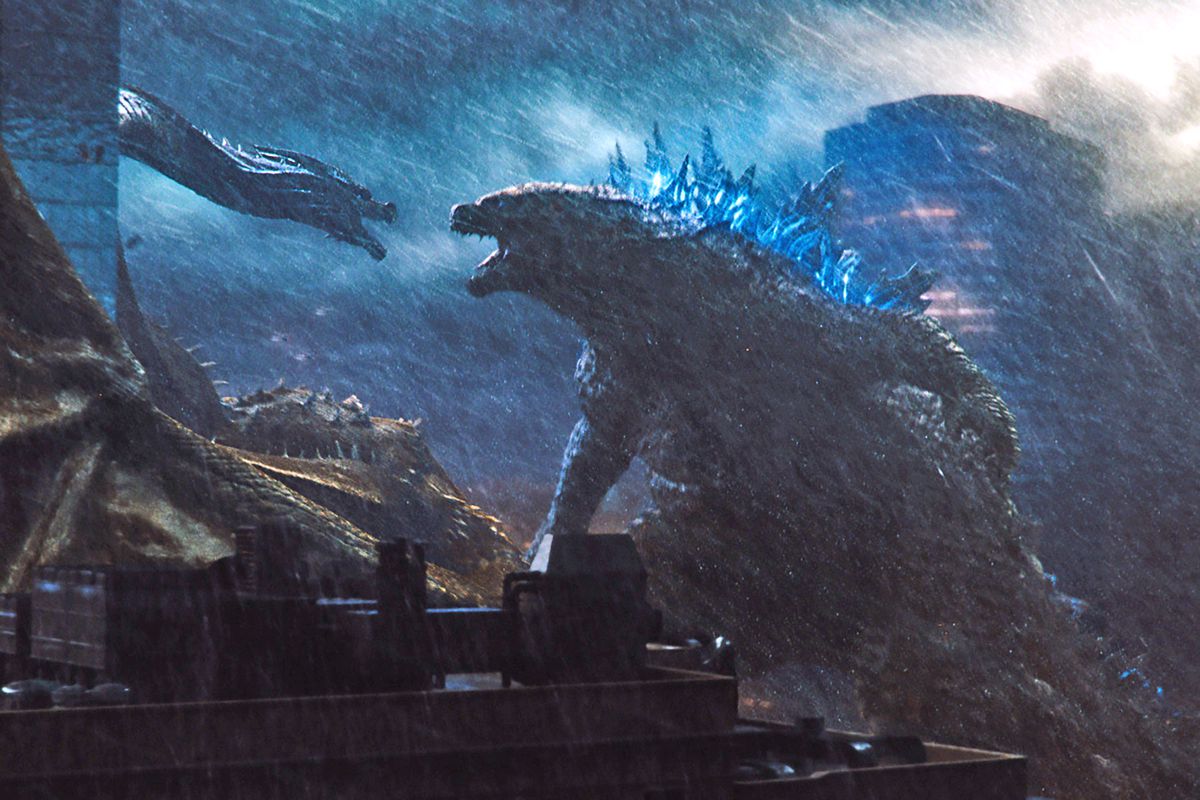
You’ve been quoted as saying you had the time of your life. Would you say Child’s Play is your most enjoyable experience in film to date? And if not, what would you say is?
It’s right up there. For me, every film is a unique adventure and comes with unique challenges, and overcoming those challenges is a huge reward. When I was working on Godzilla: King of the Monsters, just to work on a film of that scale, a film with that much money on the line, and a lot of cooks in the kitchen, was a joyous experience just learning the ropes and working on something that big for the first time. So it’s hard to compare, but I will say about Child’s Play, it’s probably the most fun I’ve had writing music in years. One of the reasons is because of the toy orchestra concept, and the process of writing this music involved me picking up an instrument, setting up a mic and playing that instrument. It involved me getting me singing. The process of doing that yielded a score that was more personal, it is almost the closest you can get to music being directly downloaded from my brain, it didn’t go through a hundred other musicians, it wasn’t a wildly collaborative process, which I enjoy, but in this particular case it just got these weird things out of my brain, and I had a blast doing it, it was an incredibly rewarding experience. You couple that with working with some of the best producers and directors I’ve ever worked with, they were supportive, they were encouraging and they pushed me further, encouraged me to push these weird ideas that I had, and I’m grateful for that. It was a tremendous experience.
It almost sounds like Brian Wilson when he did Pet Sounds.
Totally, and Brian Wilson was legitimately an inspiration. I mentioned Danny Elfman, but really the other vibe I was going for was Jon Bryant. It was like if Jon Bryant scored a hardcore horror movie, what would that sound like? That was something I kept speaking about. But yeah, Brian Wilson too, we’re talking about musicians that have a very unique, personal sound that was influenced not only by their imagination, but by their performance. For the most part I am an orchestral composer, I don’t think of myself as a performer, so this developed another side of my brain and has another side of my personality in it because I played it.

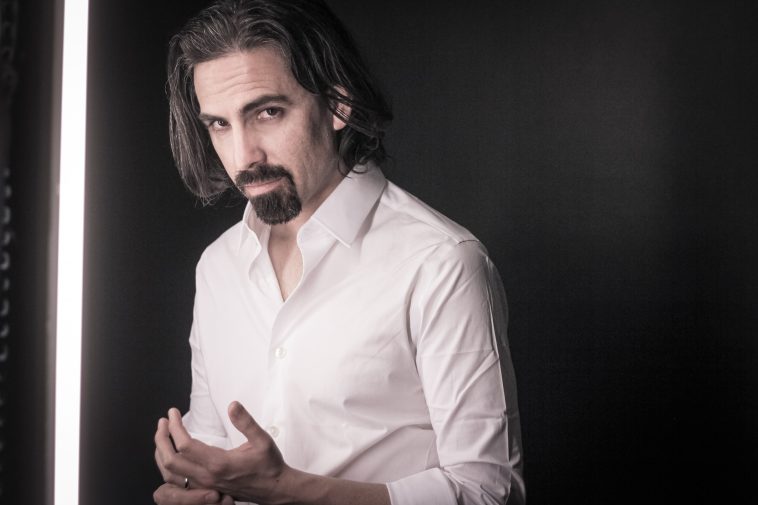




Leave a Comment